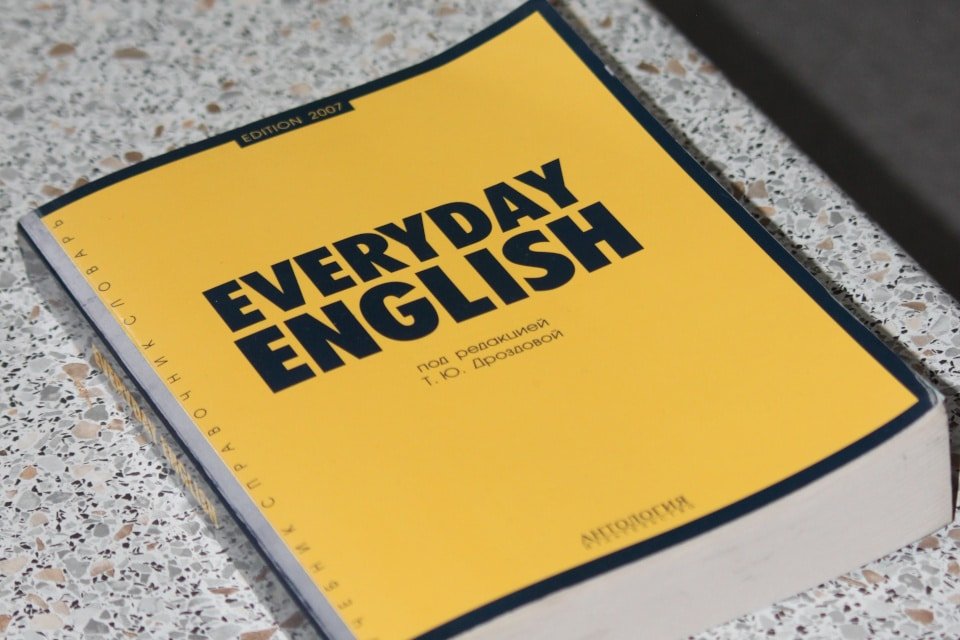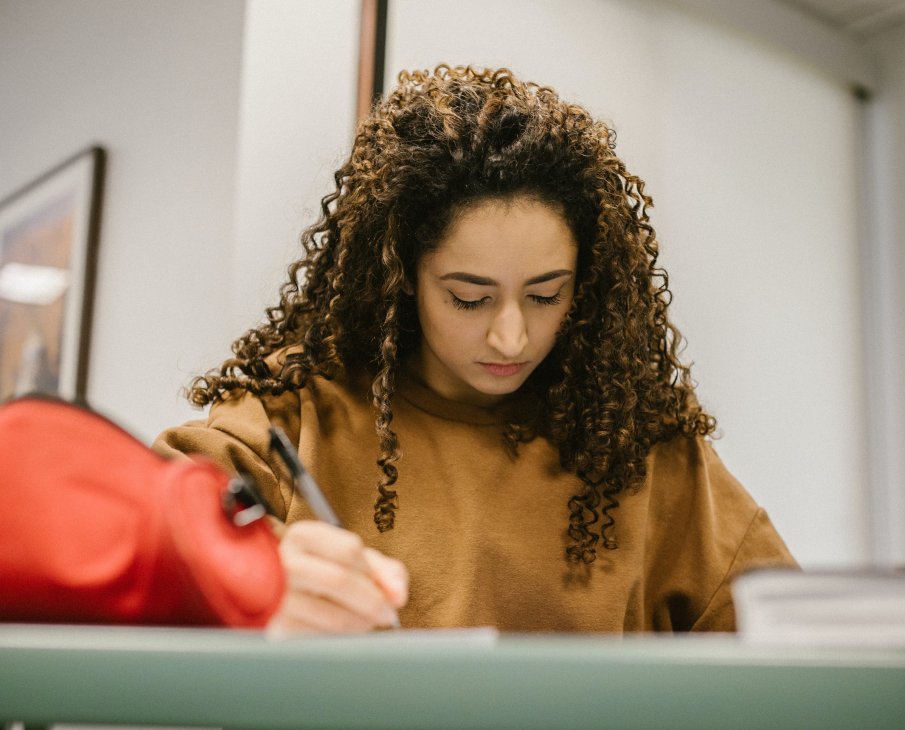International students who wish to come to Germany and study in a degree program, may realize on their application journey that their education certificate from home may not transfer to the German higher education system. If this applies to you, then you can breathe easy! It is still possible to study in Germany though your education completion is not recognized as equivalent. If you are not sure about this process, please make sure you check the process to apply for bachelor’s and master’s programs in Germany.
Alternatively, if students are planning on attending a German-language study program and want to improve their language skills, Studienkolleg is a great opportunity for students to prepare. While most international students study in English, they also have the option of studying in German should they choose to. Whether students want to work on their German or make sure they are ready for a German university, Studienkolleg will benefit them in their journey to Germany. In the following article we guide you through what a Studienkolleg is, whether it is relevant for you, and steps to apply.
What is Studienkolleg?
In short, a Studienkolleg is an institution which provides a bridge for international students to study programs in Germany. The purpose of the Studienkolleg is to prepare students to take a final exam (the Feststellungsprüfung or FSP) which grants them permission to attend a degree program in a German university. Studienkollegs offer courses for international students in Germany in order to prepare them for studies at a German university. They provide students with the opportunity to learn German basics or improve their intermediate German language skills. Moreover, Studienkollegs prepare students for university life and study structure at German universities.
Studienkollegs can be public or private. The public ones are free and offer more general course topics. Private Studienkollegs will have tuition fees but may be suitable for some students who need specific university courses. Some German universities may not recognize certifications from certain private Studienkollegs so be sure to check before you apply.
Studienkolleg types: University and Applied Science
The topic of the study program and the type of university which you are planning on undertaking in Germany will affect the type of Studienkolleg you need to enroll in since different topics may have different learning approaches (e.g. STEM topics compared to social theory programs). For some fields of studies you can choose between University and Universities of Applied Sciences (E.g. business, engineering), others are offered only by one Studienkolleg type (e.g. medicine).
Studienkollegs are divided into two different types: University and Applied Science. This distinction is very important because, depending on which type you take, different paths are open to you.
- If a student successfully passes exams for a “University” Studienkolleg, then they can choose to study at either a University or a University of Applied Sciences (UAS).
- If a student chooses a Studienkolleg affiliated with a University of Applied Sciences, then they can only study at a UAS.
For more information on the difference between a “University” and a “University of Applied Sciences,” see our Guide on University Types in Germany. The table below illustrates a general breakdown of subjects accordingly:
| University Studienkollegs |
University of Applied Sciences Studienkollegs |
|
|
| Qualifies for a study at Universities AND Universities of Applied Sciences. | Qualifies for a study at Universities of Applied Sciences. |
Some (mostly private) Studienkollegs also offer combinations. The combined M+T course at the Studienkolleg Düsseldorf is aimed in particular at applicants who are not yet sure whether they would prefer to study medicine or technology.
Geeky Stuff Box
The letters refer to the field of study in German. For University Studienkollegs it is one letter only:
- G: Geisteswissenschaften (humanities).
- W: Wirtschaft (business).
- T: Technik (tech).
- M: Medizin (medicine).
- S: Sprachen (languages).
For Studienkollegs at Universities of Applied Sciences the courses have two letters:
- GD: Gestaltung/Design (design).
- TI: Technik/Ingenieurwissenschaften (tech/engineering).
- WW: Wirtschaftswissenschaften (business/economics).
- SW: Sozialwissenschaften (social sciences).
The applied science Studienkollegs are oriented towards programs which may be more hands-on or technical rather than theory and/or research based. However, this can vary depending on the study program. An example can be that a student pursuing a degree in art history and appreciation would more likely need to attend a university Studienkolleg rather than an applied science one.
Is the type of Studienkolleg and the course selected binding?
Yes and no! If you have already passed the Feststellungsprüfung in a given course (e.g. T) and want to study a subject outside the selected course (e.g. M, W) you must take a supplementary examination in the additional subject courses. The prerequisite for this is that the original university entrance qualification permits study in this subject.
Is Studienkolleg in English?
There are a select few Studienkollegs in English (shown below). However, because Studienkollegs are meant to prepare students for studies in Germany, the language of instruction is generally in German. In order for students to be admitted to a Studienkolleg, they will first need to demonstrate German language skills at the B2 level (which is the upper-intermediate level according to the Common European Framework of Reference for Languages - CEFR) . This is a general guideline to follow, but note that some Studienkollegs may require only German at a B1 level.
The level of instruction is demonstrated by providing the Studienkolleg with a language certificate. Acceptable language certificates to prove a student’s language ability can be demonstrated by providing a certificate from an official language institution or language exam. The following are a few examples of such recognitions e.g. TestDaF, DSH, TELC, and Goethe.
English-taught Studienkollegs
All English-taugh Studienkollegs offer German language courses to prepare students for life in German (even if their program is in English). For some Studienkollegs, the program only offers entry into the direct affiliate university upon completing the program and taking the FSP.
A
FH Aachen University of Applied Sciences
Freshman Programme of the FH Aachen: Valid for certain states in Germany. Students can also choose a mix of English and German.
B
Jacobs University Bremen
Foundation Year: Only to study at the Jacobs University Bremen.
C
Cologne Business School, International Business School of Cologne
Prep4University: Valid for CBS and select German universities.
D
Kühne Logistics University of Hamburg
Preparation Programme: Done through the BIC (below) and offers entry to KLU in Hamburg.
E
Berlin International College
Preparatory Programs: Only to study at select partner universities.
Studienkolleg cost of attendance: Public vs Private Studienkollegs
As mentioned previously, there are different types of Studienkollegs. In addition to topical Studienkollegs (e.g. university or applied science), there are private and public Studienkollegs.
1
Public Studienkollegs
Do not charge tuition fees (except for special programs e.g. the Freshman Program at FH Aachen). While there are no tuition fees, there is a contribution which all students are required to pay. This fee is to cover administrative fees, on-campus services, and a public transportation ticket. These fees are marginal and average 100 - 400 € per semester.
2
Private Studienkollegs
The cost of attendance can be much higher, ranging from 4,000 € up to 28,000 € (including accomodation) at some private Studienkollegs; the places at the public Studienkollegs are limited, so unfortunately not every applicant can be accepted.
Can I skip Studienkolleg?
Depending on your entrance qualification (your foreign secondary school certificate) , Studienkolleg may be compulsory and therefore cannot be skipped. If the education qualifications (i.e. your school degree) does not meet the criteria as an equivalent to the German education system, then you will be required to attend a Studienkolleg. If this is the case, there is no way to avoid the process. To check your education certificate to see if you need to attend a Studienkolleg, please refer to our Anabin guide for prospective bachelor’s students or the Anabin guide for prospective master’s students.
While it is not recommended, students also have the option to take the final exam which is administered at the end of a Studienkolleg, without actually attending. The exam, the Feststellungsprüfung (FSP), is issued at the end of each Studienkolleg course to ensure students are ready to partake in a degree program at a German university. Taking the FSP without attending the Studienkolleg in order to skip the Studienkolleg year is highly risky and not advised.
There are some students who may have the appropriate qualifications and choose to attend a Studienkolleg in order to gain a headstart on studying in Germany. This however does not apply for all students. Therefore, some may attend for compulsory reasons and others may voluntarily choose to attend.
Is Studienkolleg difficult?
Many international students worry that attending a Studienkolleg will be a difficult process. There is no way to objectively answer whether or not Studienkollegs are difficult as different students have various determinants of what they define as difficult. However, students should keep in mind that Studienkolleg is designed to prepare international students for the coursework and style of learning that is employed at German universities.
Therefore, if it seems a bit difficult, this means that the Studienkolleg course was necessary for that particular student as they were not accustomed to German higher education teaching styles. Generally, the curriculum for Studienkollegs consists of classroom activities where attendance is mandatory.
What is the Studienkolleg entrance exam?
Before being admitted to Studienkolleg, students must first pass an entrance exam - if they apply for a public one. This exam is to assess whether students have the adequate level of German language skills to participate in the course. Additionally, the test also assesses whether students have foundational knowledge on the subject area in which they choose for their Studienkolleg.
Students should ensure they have the minimum required German skills as the entrance exam is in German and also brush up on their mathematics skills as math is also featured in the exam. Private Studienkollegs usually admit students without entrance tests.
| Course Type | Test Part I | Test Part II |
| G course | Language analysis: Students are given 3 short factual texts over different topics. These texts will contain 75 missing or incomplete words. This task must be completed in 30 minutes or less. | Chart evaluation: Students are provided a number of statements which relate to one or more charts. Students must judge if these statements are correct or incorrect or are not relevant at all to the chart. This task must be completed in 30 minutes or less. |
| M, T, and W courses | Language analysis: Students are given 3 short factual texts over different topics. These texts will contain 75 missing or incomplete words. This task must be completed in 30 minutes or less. | Math test: The duration of the math test is about 90 minutes including breaks. This test portion can only be repeated once. The contents of the math test can be typically viewed in sample tests from the Studienkolleg. |
How to apply to a Studienkolleg
Applying to a Studienkolleg is a unique process and differs from the application journey when applying to a university. Normally, students would not apply independently but this is an option for some Studienkollegs. Below we briefly detail the two different methods of applying to a Studienkolleg.
Methods of Applying to a Studienkolleg
A
Directly to the Studienkolleg
Applying via the university a student wishes to attend is arguably the simplest way to apply to a Studienkolleg. The International Office of universities typically take charge to assist international students who are applying to a study program and require Studienkolleg before beginning their studies.
B
Independently via uni-assist
Some Studienkollegs also have direct application for students. However, this is not as common and not offered by all Studienkollegs. Should students choose to apply independently, it is advised they consult uni-assist to apply as it provides help for students throughout the process.
Steps to apply to a Studienkolleg
1
Check if your school leaving certificate qualifies you to study in Germany
Before beginning a bachelor’s or master’s program in Germany, you should have a previous school certificate which qualifies you to study.
2
Check to see if you can start studying directly or whether you need to first attend a Studienkolleg
To determine whether your school leaving certificate will qualify you for immediate entry into a German university, you must find your qualification on the Anabin Database. The Anabin Database will evaluate your qualification and state whether you can directly apply to a university or whether you need to take a 1 year course in a Studienkolleg.
3
Inquire at your top Studienkollegs to determine the required application materials
Each Studienkolleg in Germany has different admissions requirements, application requirements, and deadlines. Therefore, it is important to check these for every Studienkolleg you wish to apply for.
4
Determine whether you can apply directly to the Studienkolleg or if you need to apply via uni-assist
For some Studienkollegs it is possible to apply directly with them but for others they may require students to apply via uni-assist.
5
Apply for a visa at your German Mission abroad
Consult the page of the German Mission or German Consulate in your home country. Observe the requirements to apply for a visa and proceed with the application process.
6
Prepare for the entrance exam
Studienkollegs have different entrance exams depending on the type of Studienkolleg you are hoping to attend. Some have little math with some German and others will only have German. Be sure to check the websites of the Studienkolleg for sample exams so you know how to prepare.
7
Take the entrance exam
In some countries, Studienkollegs have an external office (e.g. via the DAAD or the Goethe Institut) where students can take the entrance exam. Usually however, students need to come to Germany in order to take the exam.
8
Start your Studienkolleg studies
Once you pass the exam, you are admitted to a one-year long course at the Studienkolleg which you have applied and tested for. This year will prepare you for the demands of studies at a German university. Upon completing the course, you can apply to study at the university or university of applied sciences of your choice.
Language requirements
Applications requirements vary among Studienkollegs but generally the required documents students should be prepared to submit are the following:
- Application form,
- Résumé or CV,
- Academic Certificate/degree/diploma,
- German language certificate.
Upon receiving and reviewing the respective documents, Studienkollegs will allow students who qualify, to take the entrance exam. After the entrance exam, students are informed of the outcome of their application. Successful students should use the letter of acceptance from the Studienkolleg to apply for a student visa.
The Feststellungsprüfung (FSP)
Just as there is an entrance exam to admit students into a Studienkolleg, there is also a final exam upon completing the Studienkolleg course. This exam which is administered upon completing the Studienkolleg course is the Feststellungsprüfung (FSP). The FSP will include questions from each module which was covered in the course. The questions on the FSP depend on the particular subject of the course. Students can expect to have questions about the German language on the FSP in addition to specialized questions specific to the study topic.
Students should take note that not all Studienkollegs offer the FSP and that this may be separate from courses. Students should check course websites to determine if their preferred program has the FSP incorporated as part of the curriculum upon completing studies.
Summary Box
Studienkolleg can cause some stress for students if they are required to take this preparatory course prior to their degree program in Germany. However, this is normal and students should not worry about this process. Below are a few important things to keep in mind:
- Studienkollegs are a year-long preparatory course for international students to improve their language skills and prepare for the German higher education system. Depending on the study subject, students are placed in either a university or an applied science Studienkolleg.
- Mandatory participation in a Studienkolleg is required by international students who do not have an equivalent finishing degree from their home country.
- The application process consists of an application package, an entrance exam, and the payment of any fees. Students can choose from public Studienkollegs which are free and private Studienkollegs which charge a marginal tuition fee.













